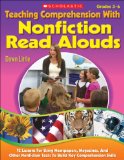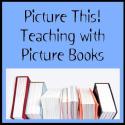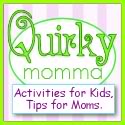 Over the years, in schools I’ve taught in we’ve sent home summer reading packets. Many schools think kids will continue reading over the summer if they are given a packet of activities to complete when they read. This (typically optional) packet of activities is turned in when school begins and children usually receive some kind of reward in return. Unfortunately, extrinsic rewards do not usually result in children reading more (or enjoying it!). We are better off if we motivate our children to read with intrinsic rewards – the idea that they want to read because they want to read and it makes them feel good! Yet, time and time again, research has shown that children lose what they learn over the school year if they don’t continue reading and writing over the summer. I get why schools insist on sending home packets – it’s to keep kids learning, but it’s not very motivating.
Over the years, in schools I’ve taught in we’ve sent home summer reading packets. Many schools think kids will continue reading over the summer if they are given a packet of activities to complete when they read. This (typically optional) packet of activities is turned in when school begins and children usually receive some kind of reward in return. Unfortunately, extrinsic rewards do not usually result in children reading more (or enjoying it!). We are better off if we motivate our children to read with intrinsic rewards – the idea that they want to read because they want to read and it makes them feel good! Yet, time and time again, research has shown that children lose what they learn over the school year if they don’t continue reading and writing over the summer. I get why schools insist on sending home packets – it’s to keep kids learning, but it’s not very motivating.
This summer, instead of encouraging my son to complete tasks he’s not really interested in, I decided to appeal to my son’s very healthy sense of competition (a typical trait of boys) by challenging him to read independently over the summer. I mentioned this idea to him and he loved it! He won’t be in competition with anyone but himself. This has led me to create my first community challenge.
So welcome to Literacy Toolbox’s Summer 2011 Reading Challenge! I hope you will join us!
Goal: Challenge your child to read independently this summer. Encourage your child to graph his success! If you would like to download a Total Number of Books Read in Summer 2011 graph to use, you may do so here. Or involve your child in making one of his own. Especially if your child plans to read more than 20 books a month!
I, personally, joined my own challenge this year – The Centurions of 2011 that high school teacher Paul Hankins started. My challenge is to read 111 books in 2011. I keep track of the books I read each month and share the titles with the group at the end of the month. I don’t graph my results, but may do so over the summer to share in the experience with my son.
Challenge Logistics:
1. Sign up below by May 31, 2011. The challenge will run from June 1 through August 31, 2011 and is open to independent child readers.
Head over to the NEW Literacy Toolbox to sign up!
2. Plan to begin on the first day of your summer vacation, but for the purpose of this challenge, we will include any reading that your child does between June 1 and August 31. Encourage your child to read independently every day.
3. Plan to check back here on the last day of each month (June 30, July 31, and August 31) and share the number of books your child read that month and a couple of favorite titles. You may do so by leaving a comment on the page or by writing your own post on your blog (if you write one) and linking to it on the last day of the month here.
4. Prior to starting, ask your child to make a goal for the month. How many books does he think he can read in one month? Perhaps differentiate between the number of picture books and the number of chapter books. Do this at the beginning of each month. At the end of each month, discuss whether your child met his goal. If he did not, ask him if he should do something differently to meet the goal he sets for the next month. If he exceeded his goal, ask him why he thinks he may have done so.
5.Encourage your child to keep track of the number of books he reads each day. Consider making a special journal to keep the title of books read. This will help him keep track of the total number of books he reads, but also serves as a reminder of titles that he can look back on when looking for a new book to read. Help him graph the total number of books he reads each month.
6. Consider joining your child in the challenge. In other words, challenge yourself to read independently along with him. Set goals, keep track of the number of books you read, and graph your results. This is a great way to model for your child what “real readers” do. Real readers might not graph their results, but they certainly set goals and re-evaluate them.
7. Most of all…have fun!







